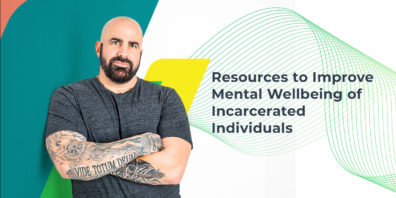3 Ways Employment After Prison Can Be Achieved
octubre 18, 2016
Obtaining employment after prison is one of the most important things a former offender can do to increase his or her potential for success.
In addition to benefits like regular income and a stable routine, gaining employment after prison is a big self-confidence booster.
Author Michelle Alexander states in her book, “studies have found that finding a job is the thing people are most worried about when they are released, even more so than housing”.
Even though former offenders have paid their debt to society upon their release, finding gainful employment can be a struggle. Here are three proven tactics to use when seeking employment after prison:
1. Engage the Community
This is an excellent way for anyone, including a former offender, to open doors for employment.
Oftentimes, friends and family members can help find work. Either you know someone who is hiring, or perhaps you own a business yourself to help a former inmate get started.
If you do not know anyone currently hiring, you can certainly advocate for a former inmate. Expand into an existing network and provide a positive testimonial. The odds increase that someone who is hiring will come into the picture, and an opportunity will arise.
The saying “it’s not what you know, it’s who you know” rings true for a reason. Chances of getting a job increase significantly when someone who knows a former inmate or his/her family is willing provide a recommendation.
Did you know that referral hires (when a business owner hires someone who comes recommended) are more likely to stay in their job and adapt to their role quicker? These are excellent points to make when interviewing with someone who met you based on a referral.
To make the most of community help, an advocate can write a letter of recommendation. If the potential employer and the advocate know each other well enough, consider a phone call on the former inmate’s behalf.
2. Create a Professional Resume
A professional-looking resume can set a candidate apart from others in pursuit of employment after prison.
It is likely that a potential employer has to sift through a number of resumes. Ensuring a resume stands out with a professional and clear design increases the odds that it will be read.
There are a number of free online tools to use for creating a professional resume, including:
When determining what goes on a resume, consider the following:
- Use short, informative bullet points
- Highlight strengths that translate directly to the job
- Mirror words from the job listing
If the job listing is seeking an “adaptable, hard-working candidate with 1-3 years experience”, consider a bullet like this:
Skills: Adaptability, quick to learn, hard working, team player
If your loved one struggles with what to put on a resume, consider providing personal feedback to them. Sometimes it can be hard to sing our own praises, but our family and friends ones can see our best qualities. Getting this perspective not only adds to the value of a resume, but can help boost self-esteem as a former inmate prepares to seek employment after prison.
Have at least two people review the resume. For a variety of opinions, consider asking a local Chamber of Commerce member, a local librarian, or the leader of your religious group. All of these people will be happy to help, and will bring a fresh pair of eyes to skills outlined on a resume.
Do not assume that a resume is unnecessary when applying for a job. Always have your loved one bring at least three copies of a printed resume to an interview.
Consider printing a resume on thicker paper than normal. This also ensures it will stand out. More importantly, it shows extra effort put into preparing for an interview down to the smallest detail.
Remind your loved one to offer their interviewer a printed resume right away. This will help set the tone that they are prepared and excited to go over how their skills may help the company reach their goals.
3. Understand What To Disclose About Former Imprisonment
In some cases, a prior criminal history does not have to be disclosed. Such cases may include:
- An arrest is not currently pending or doesn’t result in a conviction
- Going through a pre-trial adjudication for an offense that isn’t criminal by statute
- A minor drug offense occurred, and a certain number of years have passed since the conviction
- A certificate of rehabilitation or a similar document has been obtained to erase an offense
- An offender was convicted by a juvenile court and is now an adult. Note: juvenile records may need to be sealed or expunged.
According to this step-by-step guide, “know which offenses are on your record. The nature of your conviction matters.”
Specifically, certain prior offenses disqualify a person from certain jobs. Knowing this can help save time and energy. For example, it is not possible to obtain a job in insurance or banking if there are financial convictions on record.
To put your loved one in the best position to succeed, consider jobs that are completely unrelated to the type of offense committed or conviction held.
You may suggest for your loved one to consult a re-entry group who can expertly help determine what should and should not be done when applying for jobs. View the article below for more employment resources.
SEE ALSO: 4 Ways to Prepare for Adjusting to Life After Prison
Conclusion
Working on the steps outlined in this article will help prepare you for gaining employment after prison. Let’s recap:
- Engage the community
- Create a professional resume
- Understand what to disclose about former imprisonment
Do you have any additional tips to share? Please let us know on our Facebook Page.
Posted In: Blog



